the real and the imagined ibrahim traoré
how ai propaganda, russian backing, and viral mythmaking shaped africa’s newest savior... or strongman.
Ibrahim Traoré has become something of a digital legend. Scroll through Instagram or TikTok and you’ll find post after post painting him as the second coming of Thomas Sankara: a bold, young revolutionary who’s promised free education (according to thevoiceofafrica), introduced free housing projects (not true), declined a presidential salary, and now claims to be steering Burkina Faso toward full independence.
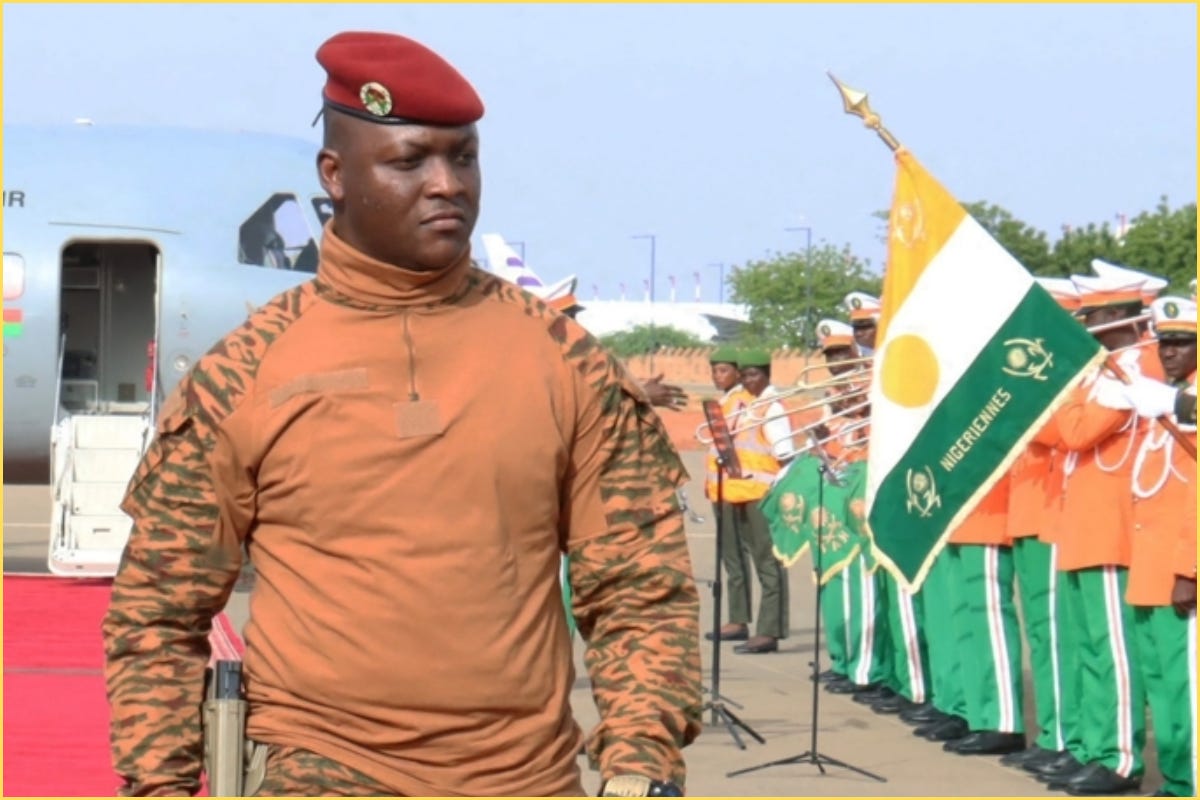
The comparisons to Sankara are deliberate and constant. Both men were military officers, both came to power young, and both spoke the language of anti-colonialism. Traoré is 37, fluent in several languages (most likely just French and his native tongue, the videos of him speaking English is AI), has survived 19 assassination attempts (although multiple coup attempts have reportedly been thwarted, claims of assassination plots remain difficult to verify, with many circulating posts lacking credible sources or evidence), and leans into a hardened, commanding image. For many, especially online, he looks and sounds exactly like the kind of leader Africa has been waiting for.
But the further you dig, the more it gets murky. Some of the claims floating around online are just flat-out wrong. The so-called free education? It was already sort of legally guaranteed in Burkina Faso long before Traoré came to power. Since 2007, education from ages 6 to 16 has been officially free and compulsory. But in practice, the system has struggled: families still face costs for supplies, schools lack resources, and insecurity has shut down thousands of classrooms. Even if Traoré plans to expand or reinforce this policy, like free university, it’s misleading to suggest it’s a completely brand-new reform. And in any case, free education doesn’t automatically mean good education.
The claim that Burkina Faso is debt-free? That’s not accurate. According to the IMF, the country still owes hundreds of millions. To be fair, this debt wasn’t incurred under Traoré, most of it stems from decades of financial dependency and Western-backed lending structures that have long trapped African countries in cycles of debt. So while it’s reasonable to critique the global system that created this burden, it’s still misleading to call Burkina Faso debt-free today.
Pro-Traoré accounts say Burkina Faso now makes its own electric cars. In reality, what’s marketed as the ‘Itaoua Native’ is identical to Nigeria’s ‘Innoson IVM EX02’ and Pakistan’s ‘GuGo motors BOX’. It’s because they are all rebranded versions of China’s 'Dongfeng Nammi Box'. These cars may be assembled or branded locally, but the designs, parts, and underlying technology all originate from China.
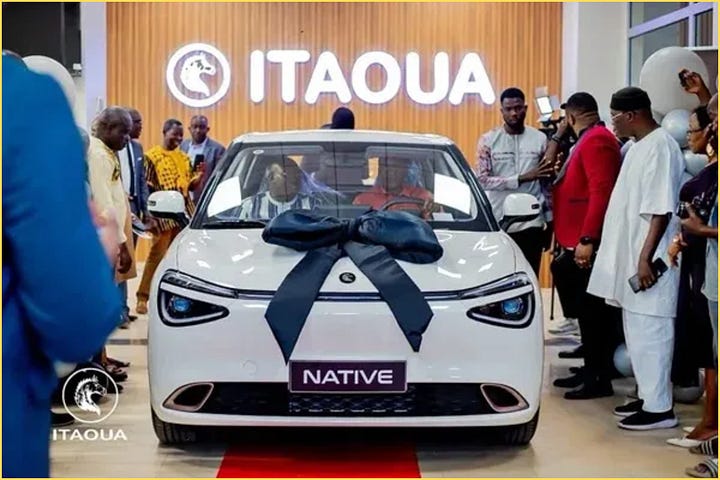
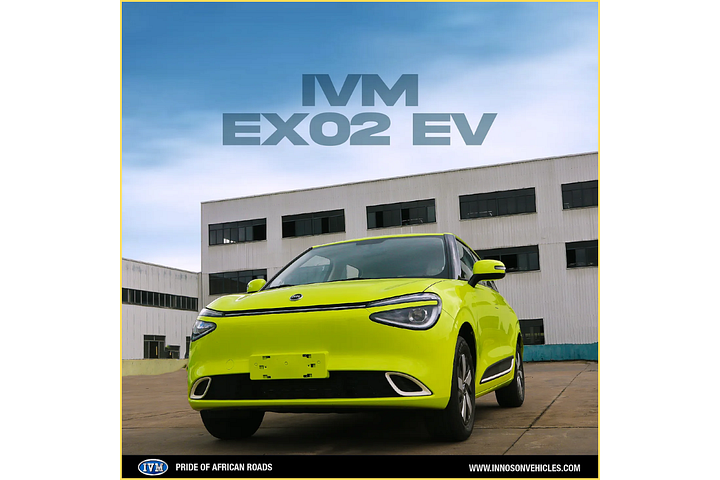

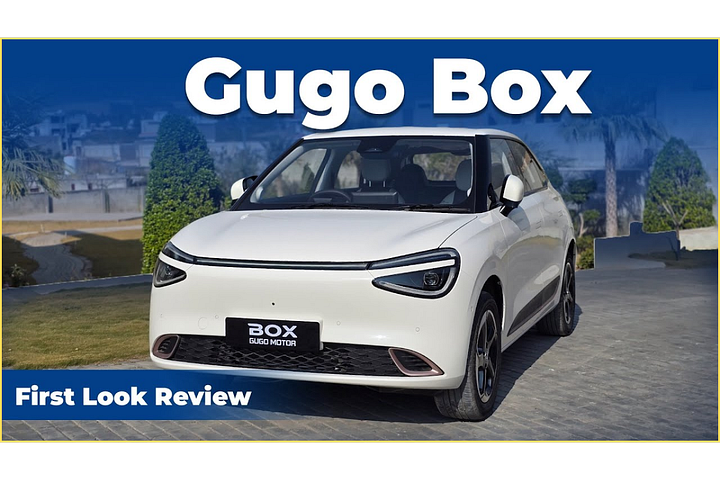
Much of the online praise for Traoré spreads through Afrocentric, Black nationalist, and anti-capitalist digital spaces. The content is often emotionally charged, visually polished, and heavy on sweeping declarations. While many posts come from African creators, a growing number appear inauthentic, or are generic pages that mimic propaganda that increasingly looks like coordinated disinformation campaigns. These narratives often lack verifiable sources and are increasingly shaped by AI-generated content and disinformation networks, some reportedly aligned with Russian interests aiming to deepen anti-Western sentiment.
Still, the energy behind Traoré’s support isn’t manufactured. For many, especially young people, he represents the desire to finally shake off the legacy of foreign exploitation and reclaim sovereignty on African terms. In this context, Traoré’s rhetoric hits the right emotional notes, even if his actual reforms might lag behind. What emerges is a form of algorithmic populism, which is intensely emotional, anti-colonial, and made to spread. The support feels continent-wide, amplified by platforms that reward performance over policy or facts. What matters isn’t the implementation, it’s the image and Traoré’s image fits the algorithm perfectly.
While it’s tempting to blame the lack of Western media attention on bias, the truth is more complicated. Outlets like CNN and BBC have regularly reported on China’s Belt and Road projects and other major developments, even when they’re critical. If Traoré’s reforms were independently verified and matched the scale of what’s claimed online, they’d likely get similar treatment. The silence says less about Western bias and more about the gap between rhetoric and reality.
What makes all this more concerning is that the misinformation often drowns out what is real. Since taking power, Traoré has rolled back a planned salary increase for ministers, increasing the salaries for civil servants, all while continuing to take his pay as a military captain. He’s nationalized two gold mines, ended the export of unrefined gold to Europe, and launched the country’s first national gold refinery, expected to process up to 150 tonnes annually. He’s invested heavily in agriculture, backed the creation of a new cotton processing center, and overseen the construction of a new international airport.
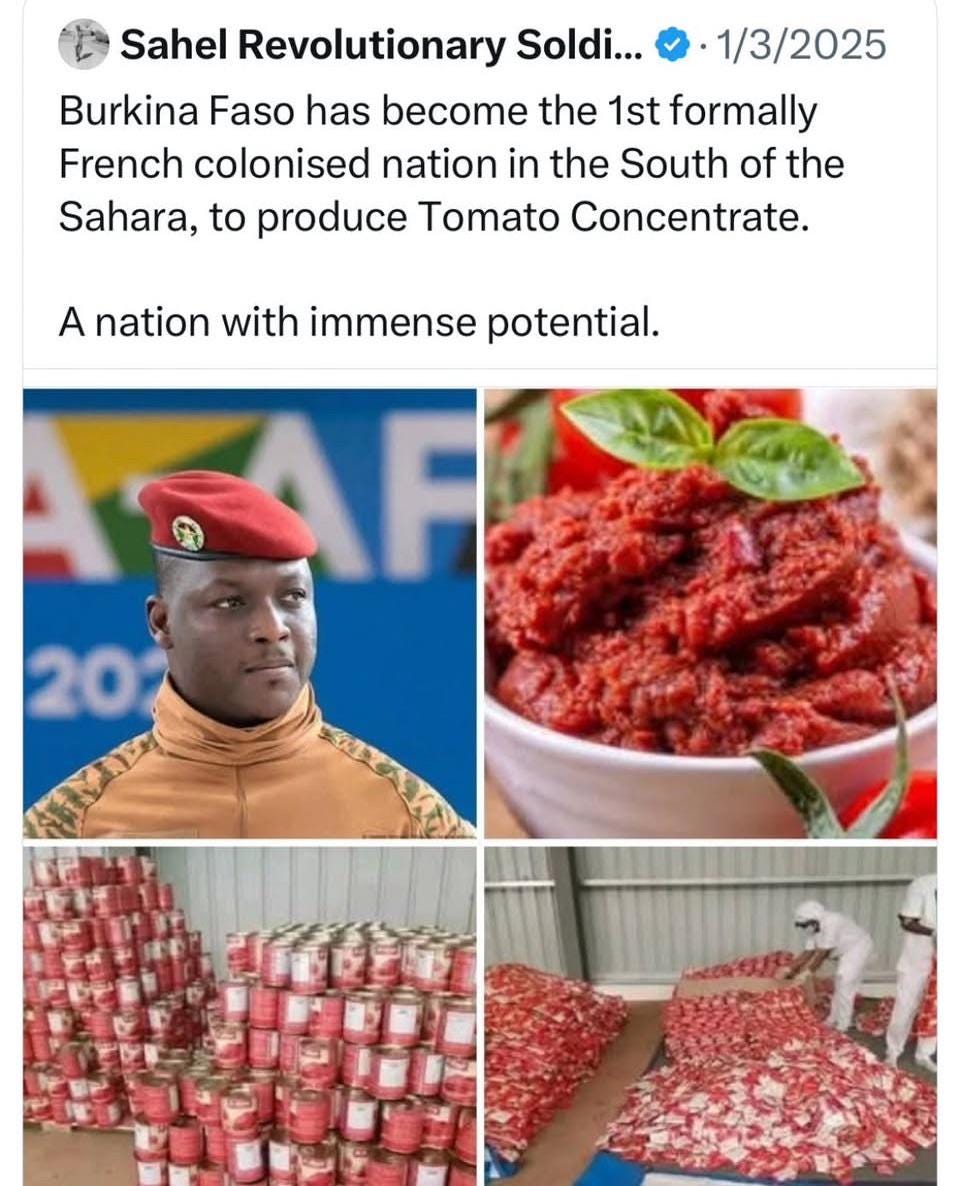
He’s also rejected IMF and World Bank loans outright, a move celebrated by many as a bold rejection of Western financial control (this turns out to be not true. There’s no official record of such a decision, and it slipped past me until the end). These are not just symbolic gestures, they’re ambitious and potentially transformative efforts at self-reliant development. If implemented effectively, they could somewhat genuinely improve the lives of ordinary Burkinabés. But history offers plenty of caution. Across the continent, similar efforts have often ended in disappointment. Once-radical liberation or socialist parties, from FRELIMO in Mozambique to SWAPO in Namibia to Algeria’s FLN, have drifted into neoliberalism, riddled with corruption, inefficiency, and elite capture. State-led development has frequently been undermined by bloated bureaucracies and political interference. Nigeria’s state oil sector, South Africa’s Eskom (state electricity company), Egypt’s whole economy, and Kenya’s sugar industry are cautionary tales. Traoré’s path is bold. But unless it breaks with the patterns that have defined so many postcolonial governments, his project could end up looking like theirs, promising a lot, yet, delivering very little.
Burkina Faso recently granted a mining lease to Nordgold, a Russian company with close ties to the Kremlin. Under the deal, Nordgold will retain 85% of the profits from a gold project valued at over $2 billion, while the Burkinabé state receives just 15%. The government is expected to collect around $89 million over the project’s lifespan. A sum that, while sizable on paper, amounts to a small fraction of the total value extracted. Although this has been presented as part of a sovereign development strategy, the structure of the agreement suggests something else: a transactional arrangement where gold flows to Moscow in exchange for political backing, security advisers, and diplomatic insulation.
In today’s post-Ukraine war environment, Russia has leaned heavily on state-linked firms like Nordgold and mercenary groups like Wagner (now Africa Corps) to pursue geopolitical influence in Africa. This raises the question: If Burkina Faso is giving a sanctioned Russia access to its gold, knowing that Russia faces international restrictions on selling its own gold, and may now rely on African gold to fill the gap, shouldn’t Burkina Faso be demanding a better deal in return? If the goal is sovereignty, it’s fair to ask whether this kind of lopsided arrangement truly advances it, or just swaps one dependency for another.
And then there’s the question of governance. Since seizing power in 2022, Traoré has dissolved the civilian government and postponed promised elections with no clear timeline. Also, far from improving, the security situation has deteriorated. A lot of the country remains outside state control, and jihadist groups like JNIM and ISGS continue to expand. Earlier this month, JNIM launched a major assault on the provincial capital of Djibo, overrunning key areas and briefly hoisting their flag. Though government forces reportedly retook parts of the town shortly after, the episode delivered a psychological and symbolic blow. It was less about territorial control and more about what the attack revealed, the state’s continuing fragility and the insurgents’ ability to strike deep into symbolic strongholds. For many, it underscored the limits of Traoré’s security strategy and the persistent reach of jihadist movements, even under a regime that promised to crush them.
Meanwhile, atrocities have been committed by all sides. The Burkinabé army and pro-government militias have been implicated in ethnic massacres, most notably the killing of over 130 Fulani civilians. This atrocity deepened distrust and opened a vacuum that jihadist groups could potentially exploit. Where the state is invisible or feared, massacres like this send a simple message: the government is not your protector. Jihadist recruiters know this well. For many Fulani, already feeling demonized, the killings confirmed their fears and probably fueled the very insurgency Traoré vowed to end. Marginalization breeds anger, and anger fuels recruitment. Human rights groups have also reported that political dissidents, journalists, and critics of the regime have been forcibly conscripted and sent to the front lines. And independent media? Still banned.
What’s happening here is a full-on PR campaign, where a young military leader is being digitally reborn as a pan-African icon. Much of this image-building happens online, especially for English-speaking audiences who are removed from local realities and in some places, often lack the media literacy. Disinformation spreads easily in this gap. AI-generated videos, fake endorsements, and even AI-generated songs (like the viral "God Protect Ibrahim Traoré" track attributed to Beyoncé with over 700,000 views on YouTube) all help build a mythos that’s stronger in translation than in fact.
[The song is lowkey pretty good.]
This isn’t to say Traoré is a fraud. It’s too early to make that call. He has a vision. He clearly resonates with people for a reason. And given Burkina Faso’s colonial history and political mess, his popularity isn’t surprising. But we should be skeptical when propaganda gets ahead of progress.
Calling him a success would be a stretch. Nearly three years in, Traoré's image has expanded online, but real change remains elusive. The crisis he inherited was deep, and to be fair, it’ll take time to fix. He may genuinely have good intentions, but so far, material progress has been slow, and much of it feels more symbolic than structural. It sounds contradictory, I know, but that’s the reality. It’s complicated.
Russian disinformation networks, alongside misinformed and/or well-meaning but poorly sourced online voices, continue to amplify his myth. While Western outlets, many with ties to intelligence ecosystems (ehem CIA, DGSE, Mossad) frame him as a Russian proxy (I don’t have a source, just a theory. Maybe true, maybe not. Intelligence agencies are always lurking). Propaganda fills the space where facts are scarce. Scrutiny is essential, don’t take any version at face value. Factcheck everything, even this article.
Just because a leader looks better than the last doesn’t mean critical examination should ease. If anything, it should sharpen. Good intentions don’t guarantee good outcomes and even if Traoré means well, that doesn’t mean those around him do. Mandela became the face of the struggle against apartheid, but the ANC that followed brought South Africa leaders like Zuma and Ramaphosa, figures whose tenure has been marred by corruption and elite consolidation. Even Sankara, who governed with rare clarity of vision, left intact the centralized state apparatus, and so inadvertently paved the way for his ally Blaise Compaoré to seize power, assassinate him, and entrench himself in power for nearly thirty years. The real lesson there isn’t just about betrayal, it’s about how easily revolutionary hopes can be undone when institutions remain weak or unreformed.
Power never arrives nor can it be maintained solo. Revolutions may begin with a single figure or group, but their fate depends on the institutions they build and the outcomes they shape. One man can spark change, but sustaining it takes more than charisma. It takes structure. It takes institutions that outlive the man, that deliver change no matter who’s in charge.
Leaders these days are often turned into legends before they’ve delivered anything lasting. Myth precedes substance, especially in the age of viral politics. Branding a movement as revolutionary doesn’t make its outcomes revolutionary. Don’t get swept up in the hype.
If there’s one hard truth to take from all of this, it’s that revolutions without transparency and accountability rooted in institutions, not personalities tend to end up in the same place: power and wealth concentrated at the top, critics punished, and promises broken. That’s not just Burkina Faso’s risk, it’s a trap any country dancing with strongman rule can fall into.



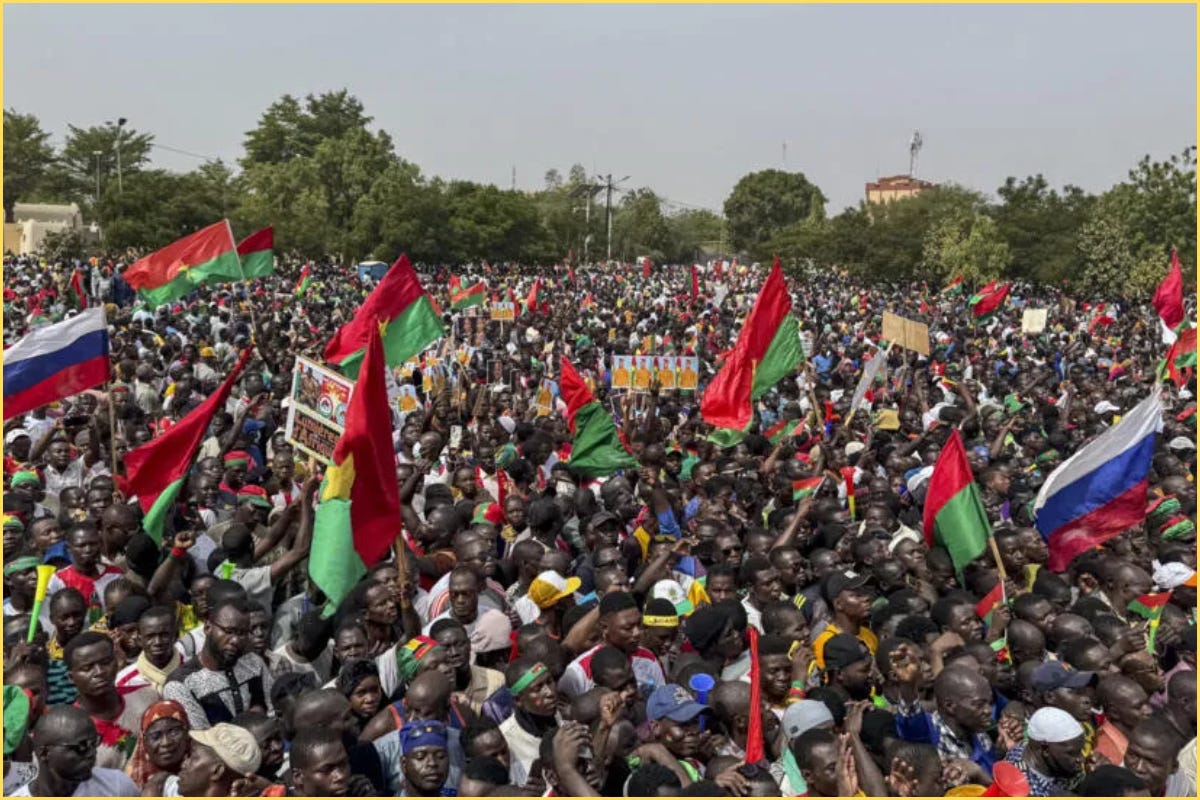
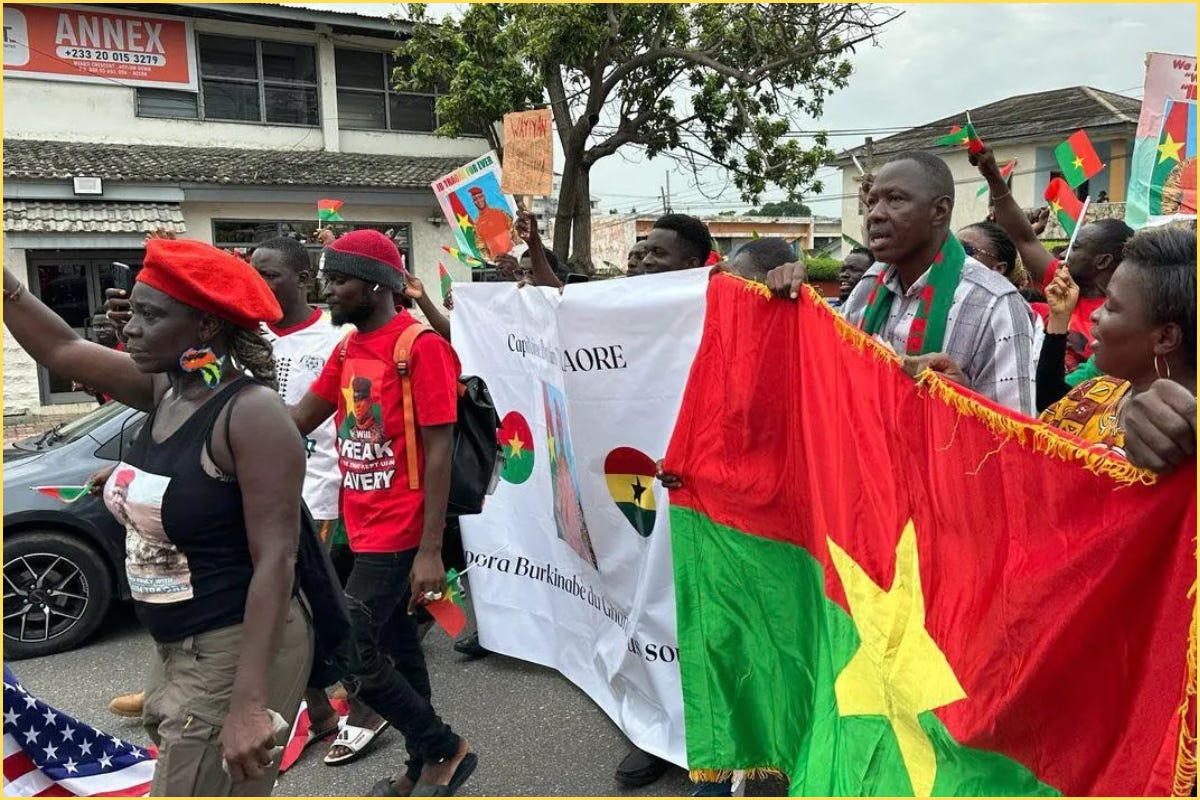
Refreshing to read a mature analysis of Capt. Traoré. Especially since the information space itself has become a theater of war. The observers must do all we can to shield ‘truth’ and ‘facts’ from the crossfire. Well done, and well timed.
I appreciate this sober analysis of Traoré and the disconnection between his online image and reality. I’ve seen these exact videos you’ve mentioned all over my social media feeds over the last few months. I’ve always thought they seemed artificial and almost uncanny, so I never bought into the hype. I just assumed, without much research, that Traoré was (like many African leaders) using populist and decolonial rhetoric to shore up support for his military junta. I’ve also been critical of his security approach to the sahelian jihadist insurgency. It seems like Traoré really is doing some good things, however, though not to the extent of what some might say, but ultimately, like you mentioned, the jury is still out. He’ll be an interesting figure to watch in the coming years. Again, great article!